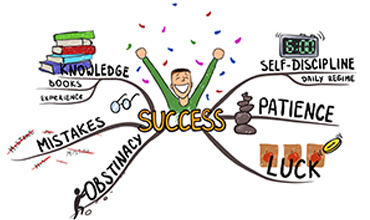Middle school is a time of great change for kids as they leave behind a relatively sheltered fifth grade experience for larger classes, less time with a primary teacher and more homework. Stir in hormones and bodies that seem to change shape overnight and you have a recipe for stressed out, overwhelmed kids!
Enter the middle school counselor. These professionals carry out the incredibly important role of offering support – not only to students, but also to parents, teachers and administrators. A counselor’s goal is to give students the greatest chance at growth and success during these challenging years. Middle school counselors hold master’s degrees in counseling and have completed all required state certifications for school counseling. In addition, they participate in regular professional development related to their field.
Supporting students
Despite the title, middle school counselors do not provide long-term therapy at school. Their goal is to identify and respond to a students’ mental health needs and then to support students and their families in connecting with outside counseling resources.
They will, however, support students with shorter-term counseling needs and are trained to provide guidance on a number of issues that a middle schooler might grapple with, such as academic pressure, divorce/family changes, grief, stress management, peer relationships and crisis management.
Middle school counselors often organize group counseling sessions for students who are dealing with similar issues, such as social skills development. Students in the group, will meet weekly or every other week and, depending upon the group’s needs, they will meet throughout the year. In the group setting, the counselor can meet many students’ needs at the same time. Given that kids this age place a high priority on the opinions of their peers, the group setting can be even more effective than one-on-one counseling.
In addition, middle school counselors help new students adjust by facilitating school tours, new student lunch groups, and small counseling groups and by checking in with new students to provide academic and emotional support.
Although middle school counselors are concerned with students’ emotional health and well-being, that is not the only hat they wear. They are also involved in academic counseling and can help students choose classes based on their abilities, interests and achievement levels. If a student is struggling in a class or needs to make a change during the first days of the semester, the counselor can help with that.
Supporting teachers
At various points in the school year, middle school counselors rotate through classrooms to teach whole-class guidance lessons. In this way, they can ensure that all students are exposed to certain topics, whether they visit the counselor’s office or not. By doing so, counselors are also able to place emphasis on topics that would be of most value to that campus or even to a particular grade. Common classroom guidance lessons cover topics such as bullying and prevention, appropriate use of social media, mental health and wellness, drug abuse and suicide prevention and high school preparation.
Counselors will also work with teachers to identify students’ academic and social/emotional needs and to coordinate intervention support when necessary. They also participate in classroom observations and can assist with classroom management and student behavioral concerns. Middle school counselors are able to facilitate student/teacher communication and are available for student advocacy.
Accessing the counselor
The process by which to see the counselor varies by school. Your child might be assigned a counselor at the start of the school year and, if this is the case, that counselor might continue with your child as they transition to seventh and eighth grade. At other schools, a counselor is not assigned, and students are the ones to initiate a relationship. In either case, students are usually told at the start of the school year how they can access the counselor.
If your student has not been told how to contact the counselor, the school’s website, someone in the front office or their homeroom teacher can provide that information. Parents are welcome to reach out to the counselor directly. The school office can share contact information, or you can typically find it through the school’s online directory.
Numerous studies have demonstrated the value of school counseling programs and their positive impact on students’ academic and social/emotional development. You can read more about these studies through The American School Counselor Association at www.schoolcounselor.org/effectiveness.
Middle school is a challenging time for both students and their families, but you are not alone in the journey. By establishing a relationship with your child’s middle school counselor, you will be able to navigate any bumps in the road and your child will have the best chance of growth and success during this time of change.
Alison Blgie is a writer living in Austin with her husband and three children. A former fourth-grade teacher, she now enjoys writing about children and education. You can also catch her talking about articles from Austin Family Magazine each Thursday morning on FOX 7 Austin.

















